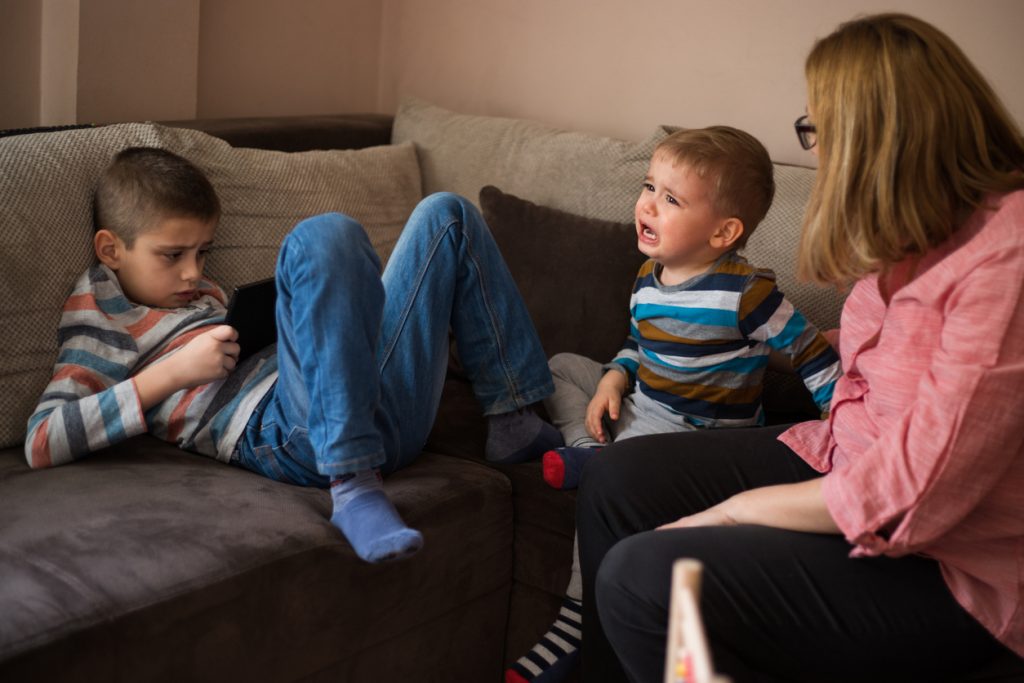Should You Force Kids to Say ‘I’m Sorry’

Parents find it shocking when I give the advice, “don’t force kids to say ‘I’m sorry’ after an incident.” They think I am letting kids off the hook. Not true! Let me take a moment to clarify my reasons.
First, to be clear, I want your children to have good manners and develop a true sense of empathy and compassion for others. Yes, I want them to take responsibility for their actions and to make amends when someone has been wronged. All of those pursuits are important. I am only suggesting a different means and method to arrive at that end.
When parents simply force a child with the ol’ parenting chestnut, “Come on now, say you’re sorry,” they invite that classic nasal and sarcastic reply, “I’m saaaawry.”
Step into the child’s mindset and emotional state. You can imagine that any empathy that they were feeling because of their wrong doing just flew out the window as their parents put the spotlight on them and their screw up, which is now on public display. Embarrassing.
Next, you’re commanded to apologize (as if you wouldn’t have capacity to do so of your own volition). Well, it’s humiliating and degrading, frankly.
Why They Do It:
- The child’s use of a mocking tones serve to help them save face and keep a shred of dignity in the moment.
- The child is saying with their behaviour, ‘I won’t be forced against my will. You can’t make me. You might be able to force me to say ‘I’m sorry,’ but you can’t make me feel it ‘HA! I win! I defeat you!’
- Sadly, it becomes a war between parent and child, a total distraction from the actual task of learning from their mistake, helping the harmed party feel better and ultimately making amends for the incidents.
- The child begins to feel angry at their parents and instead of owning the responsibility for their behaviour, they feel the other party actually got them in trouble with their parents, so they don’t feel empathy or remorse anymore. In fact, they now feel justified and not responsible.
What to Do Instead?
- Modeling. If you are one to say ‘sorry’ when you err, they will mimic you. Trust me on this one.
- Pause. That’s right. Give kids a moment to volunteer a genuine response to a situation before you jump in two guns a blazin’. You may well discover that your children do say they are sorry, if given a moment to compose themselves.
- Focus on the future. Instead of forcing them to say sorry about the past, which they can’t change, put the focus on their commitment to do something differently in the future. ‘Can you let your friend know that you won’t take his bike without asking again.’
- Ask your child ‘what should happen now?’ If they broke a neighbour’s window playing ball, letting the child think for themselves of how to right the situation; it helps build empathy, internalizes the lesson, and generates positive feelings about rectifying the situation. Replacing the window with their allowance and writing a letter stating it was an accident and promising to play in the park in the future feels restorative when they come up with the idea.
















